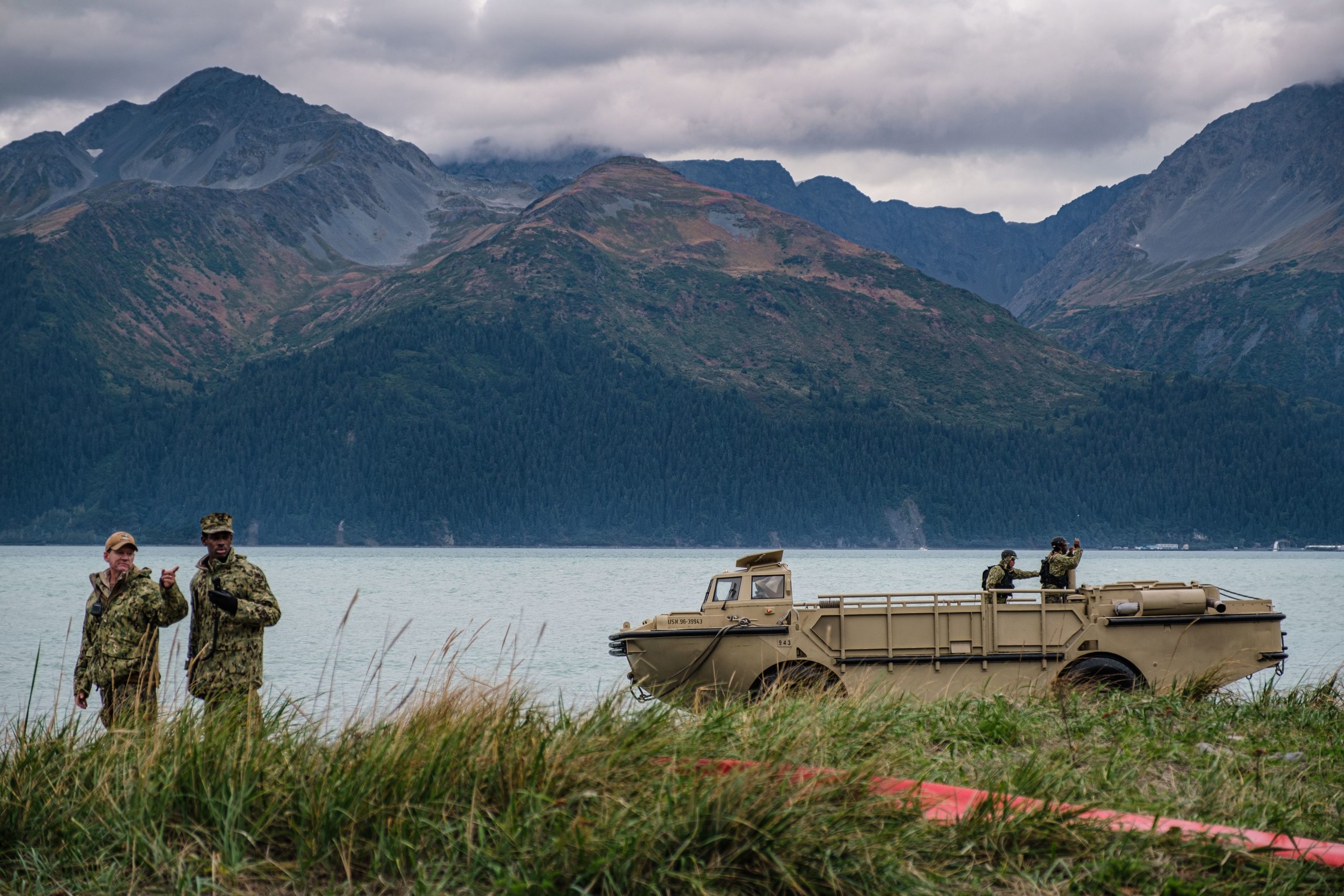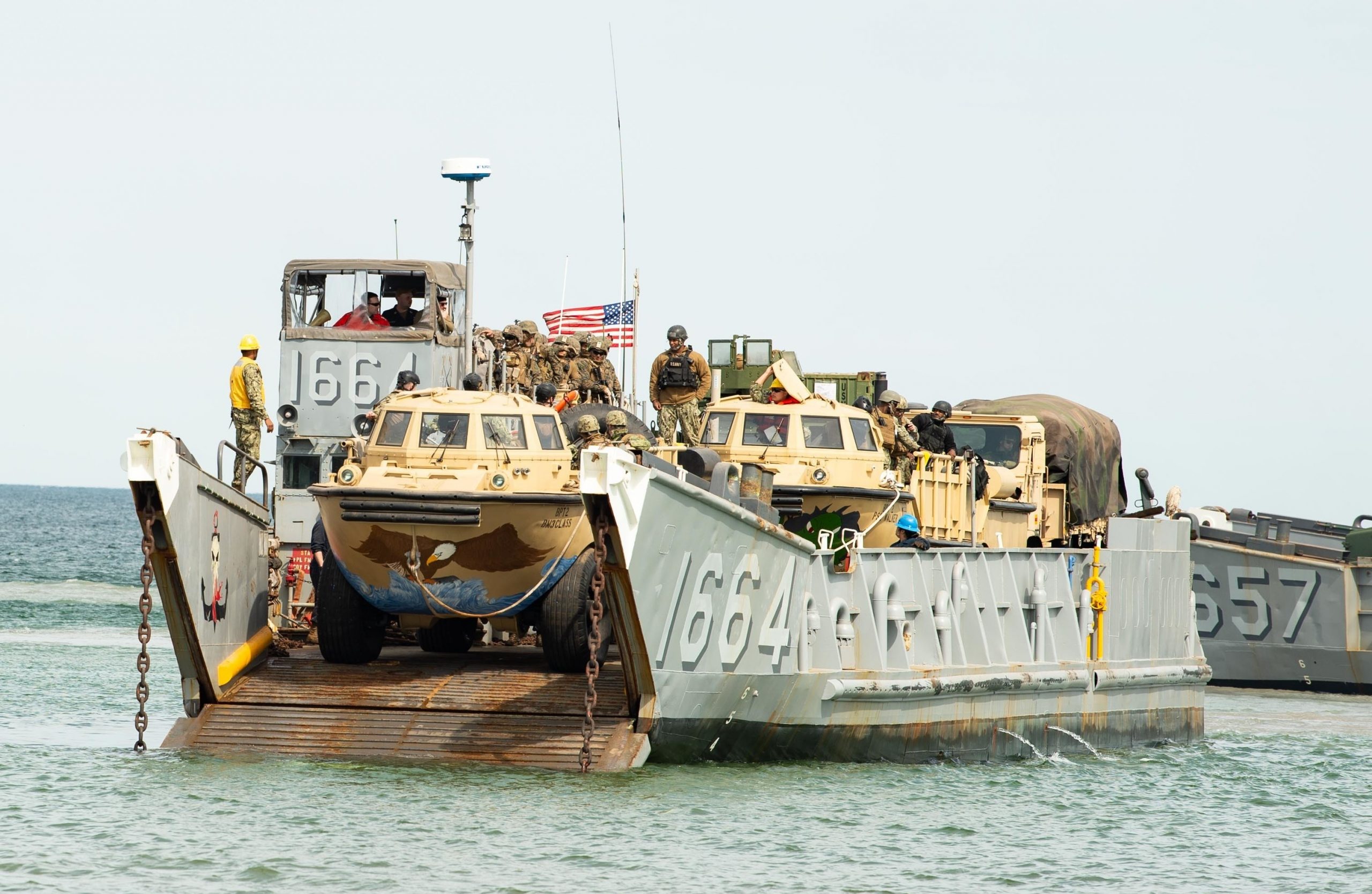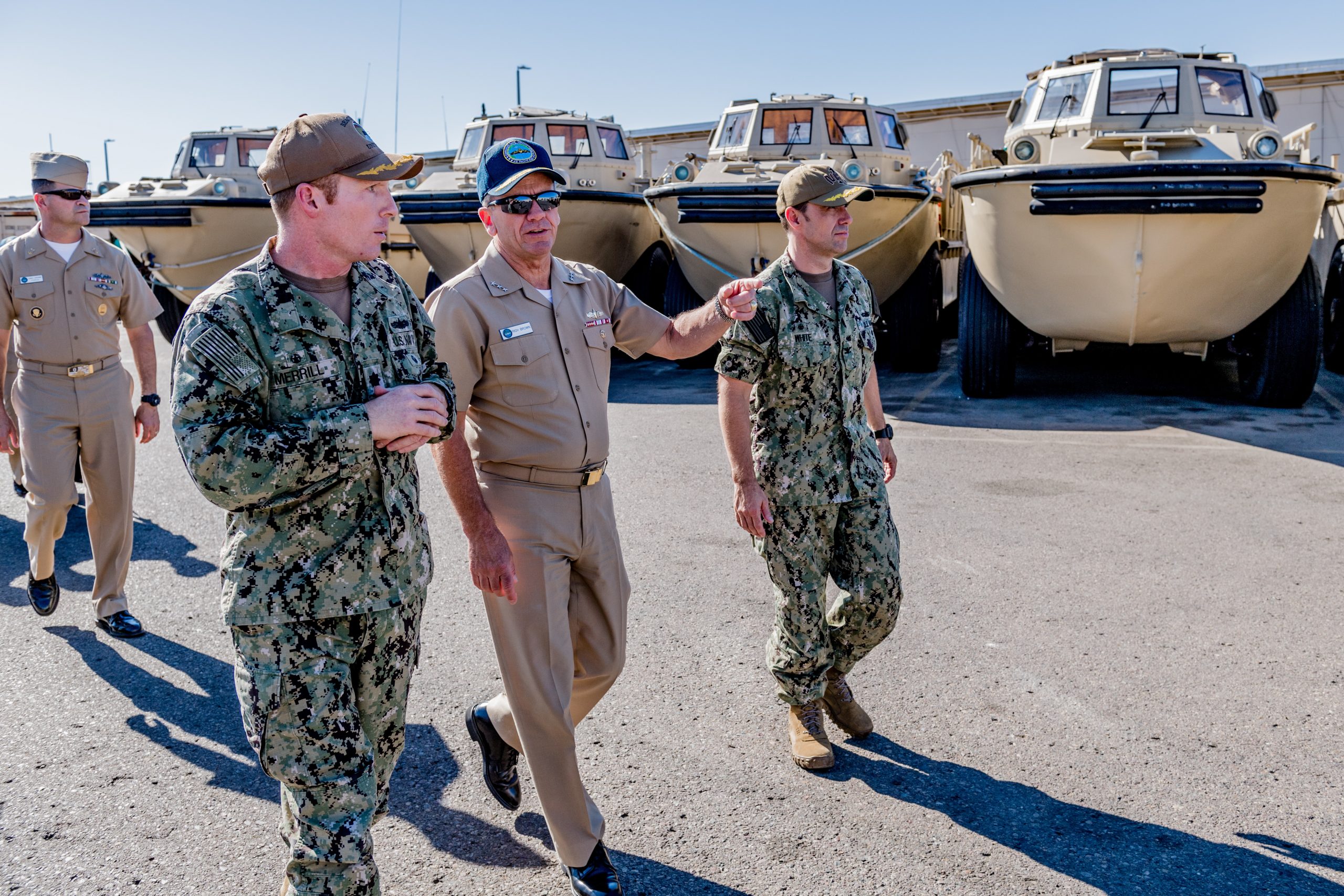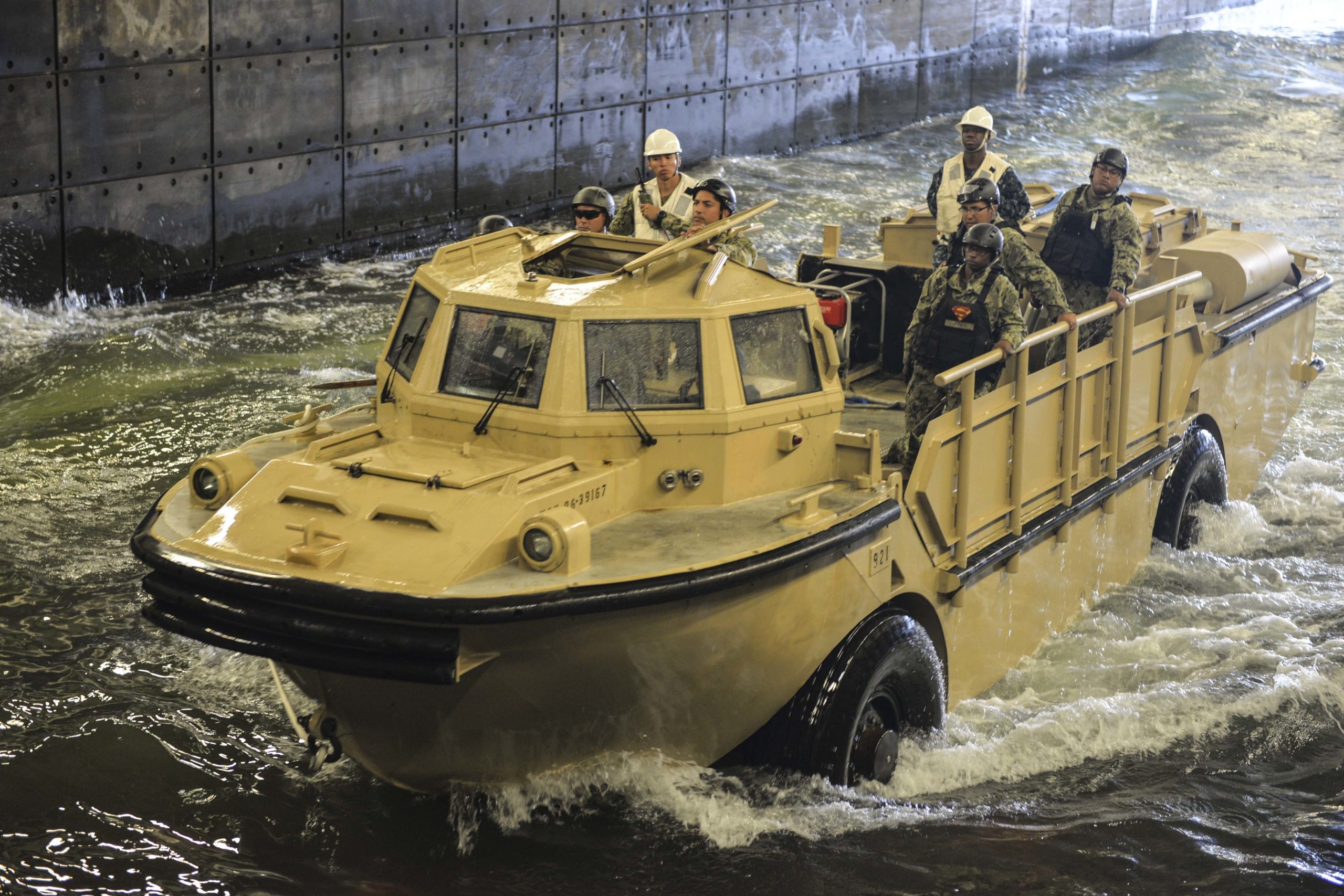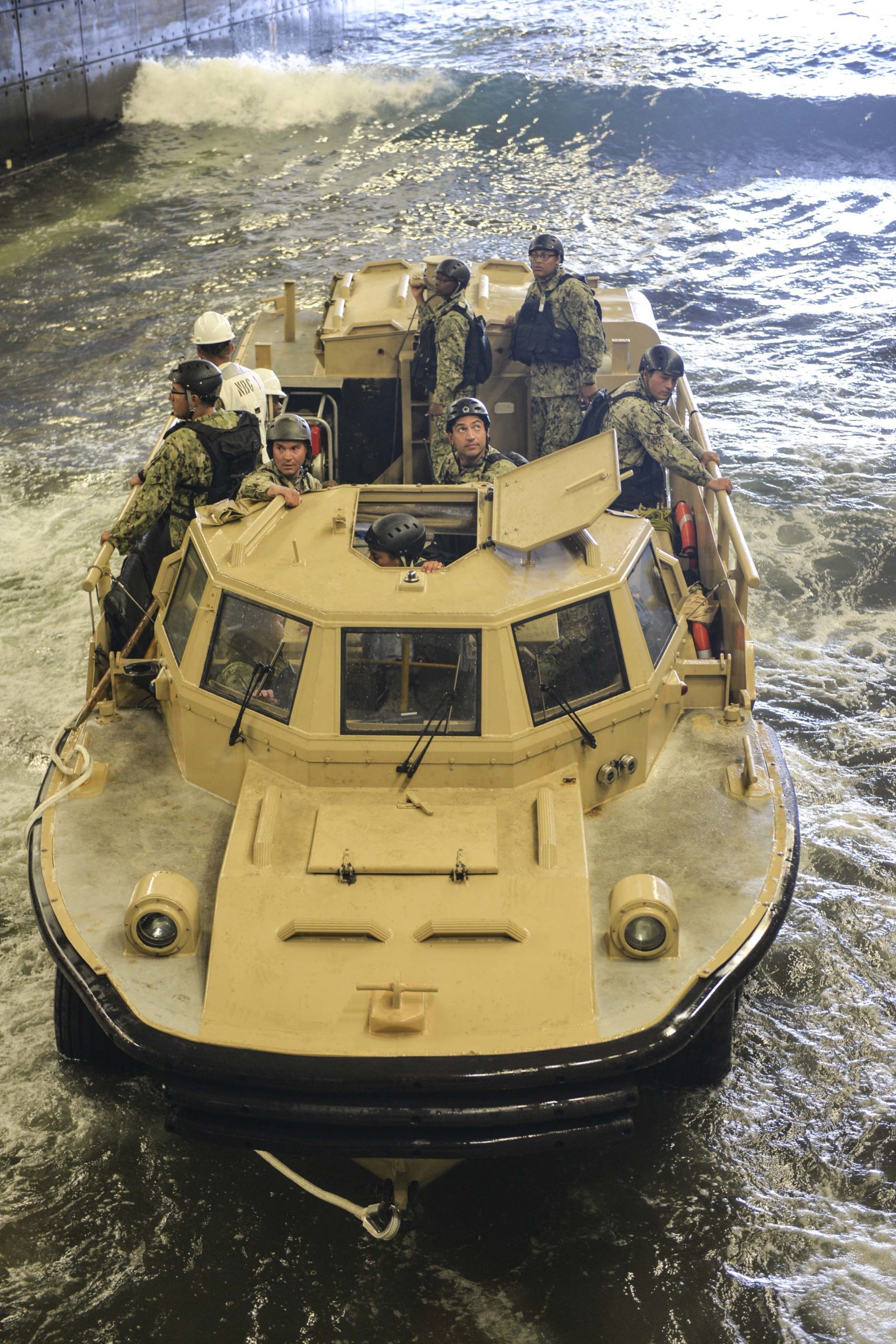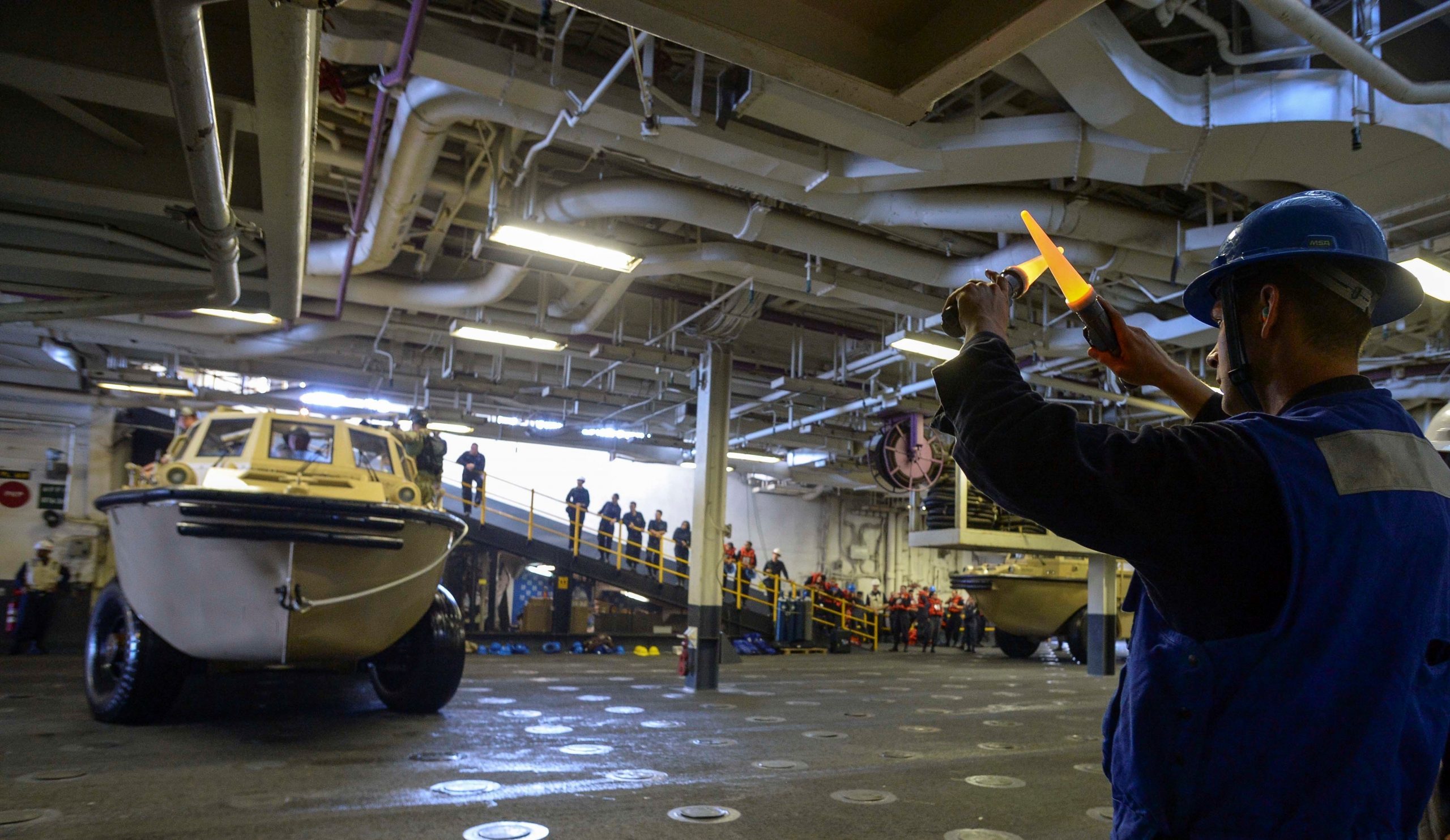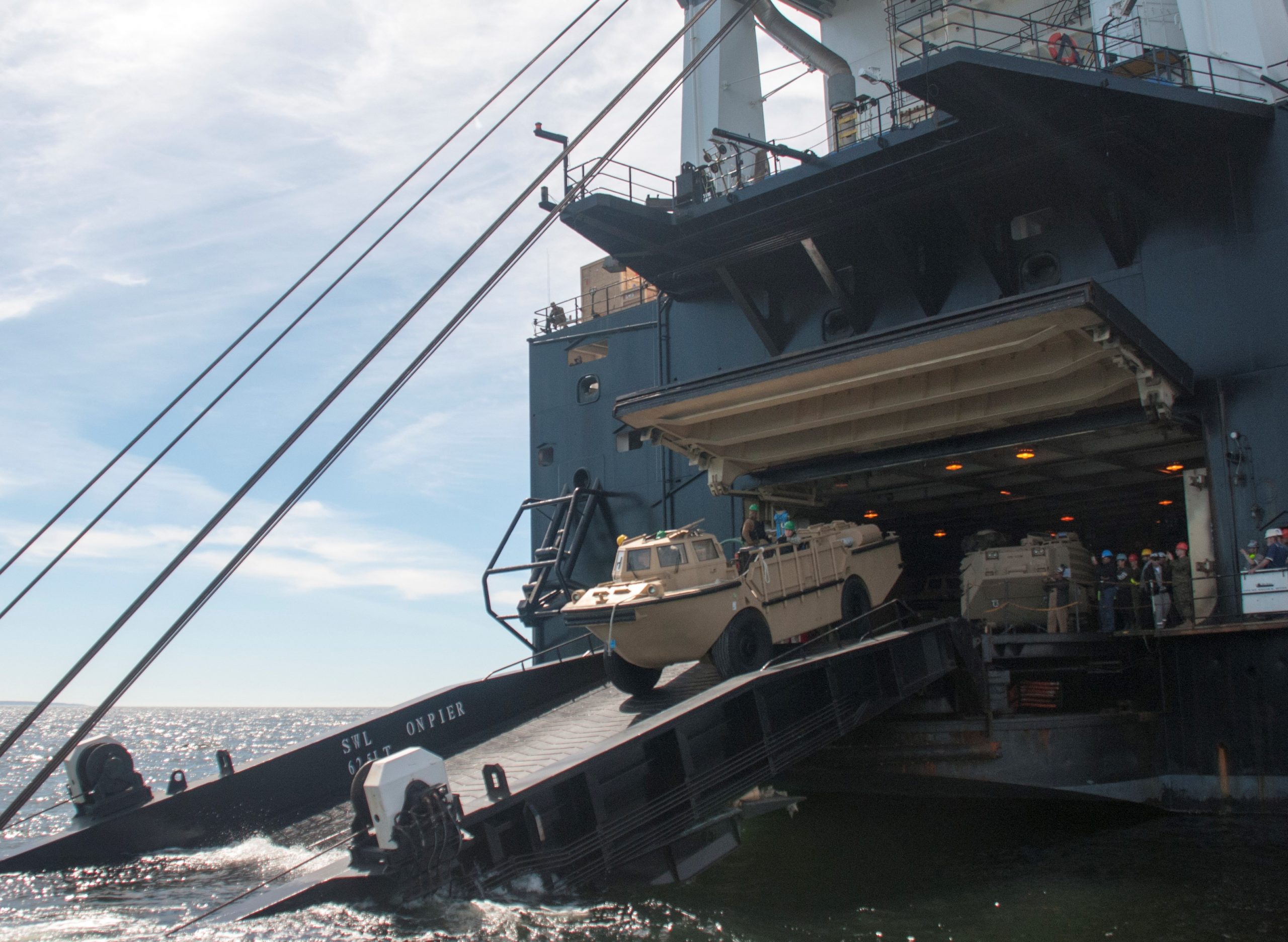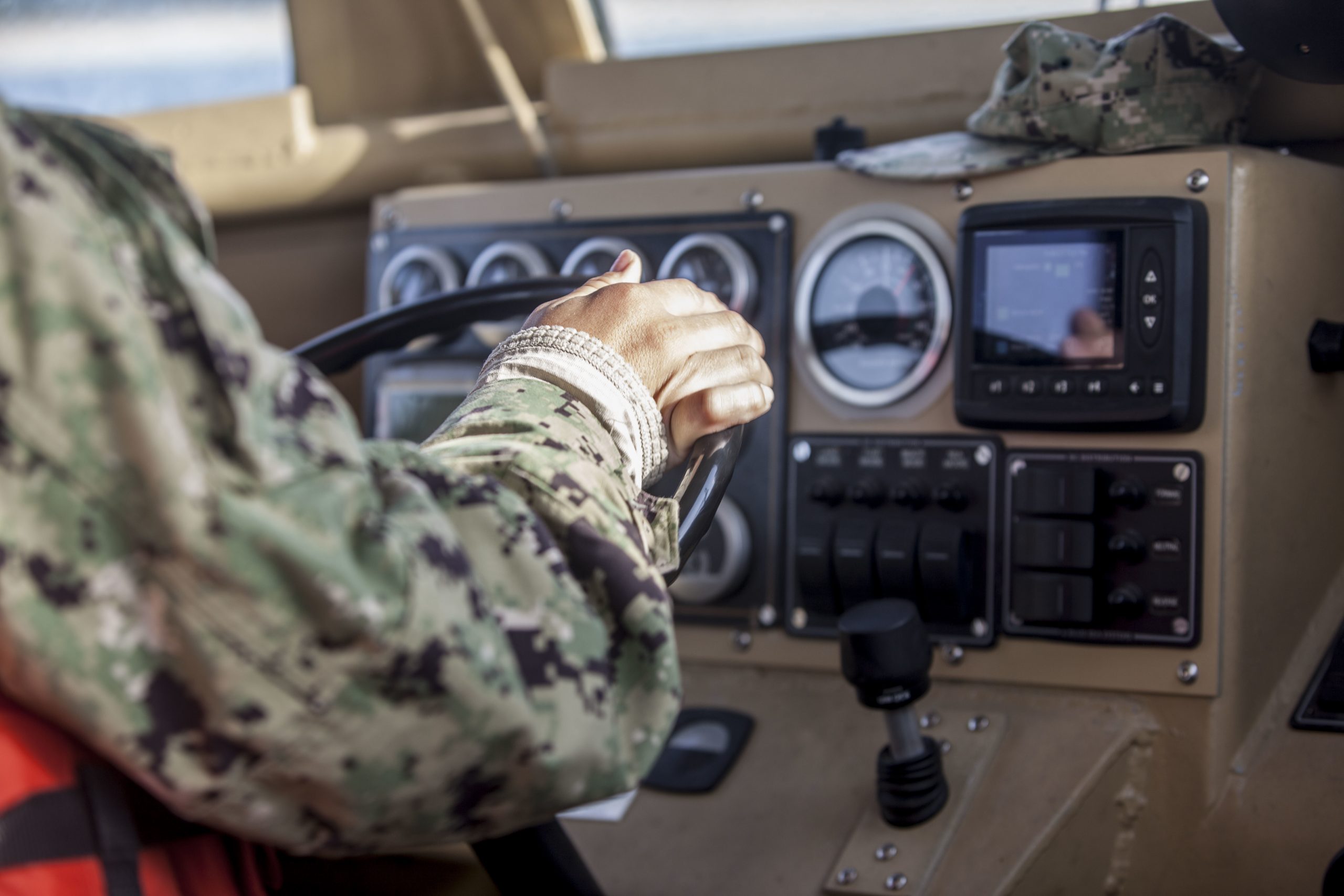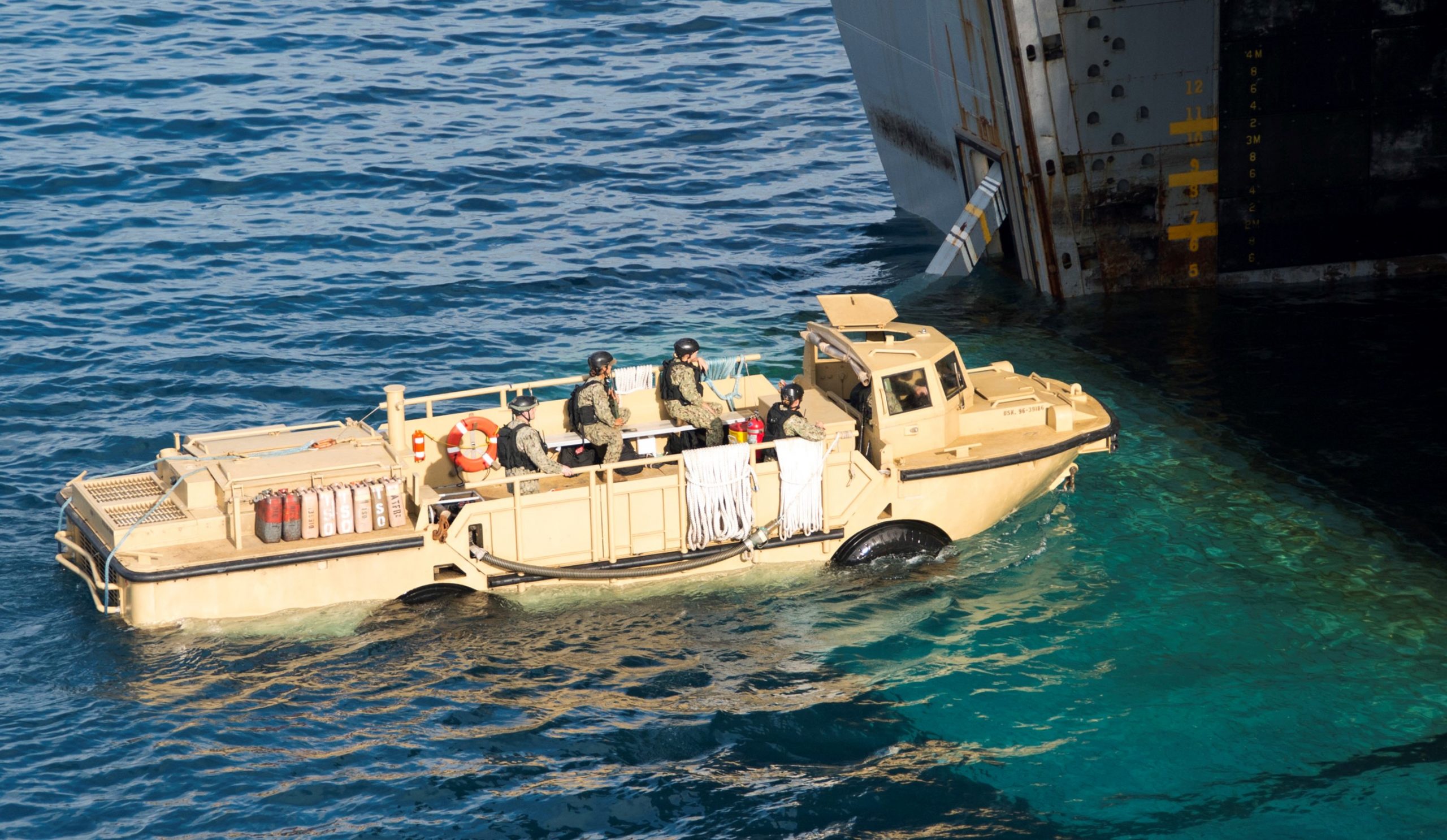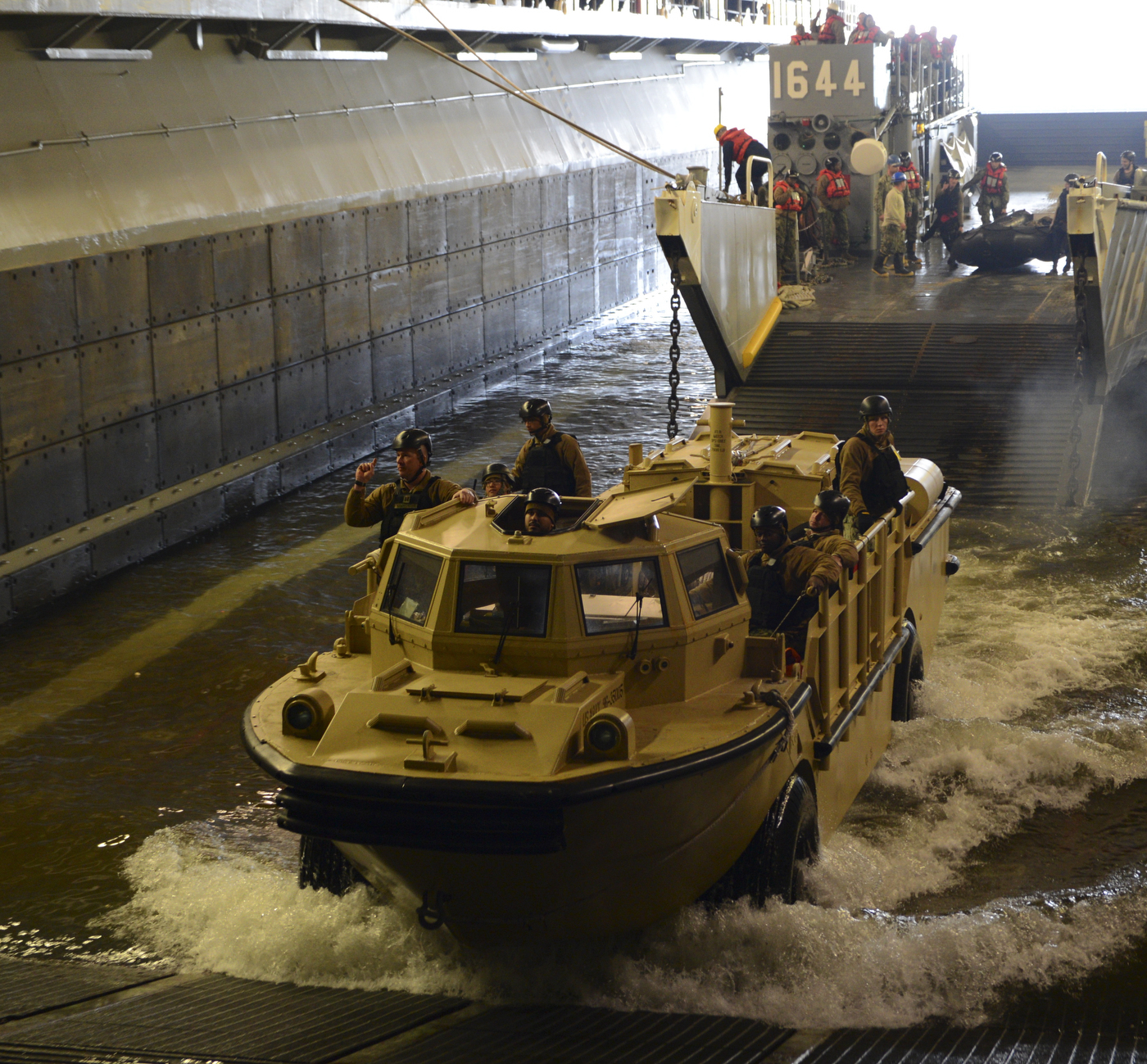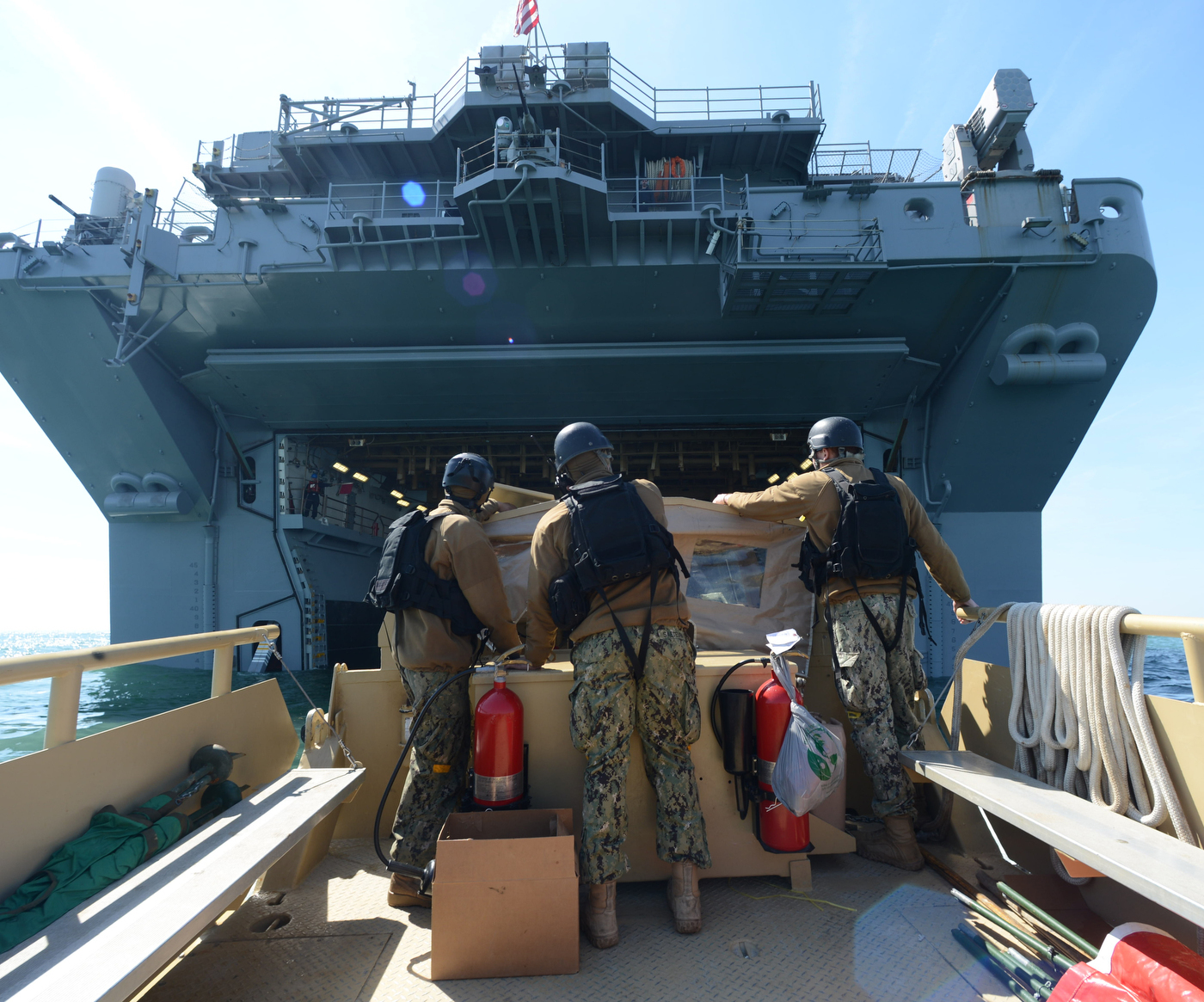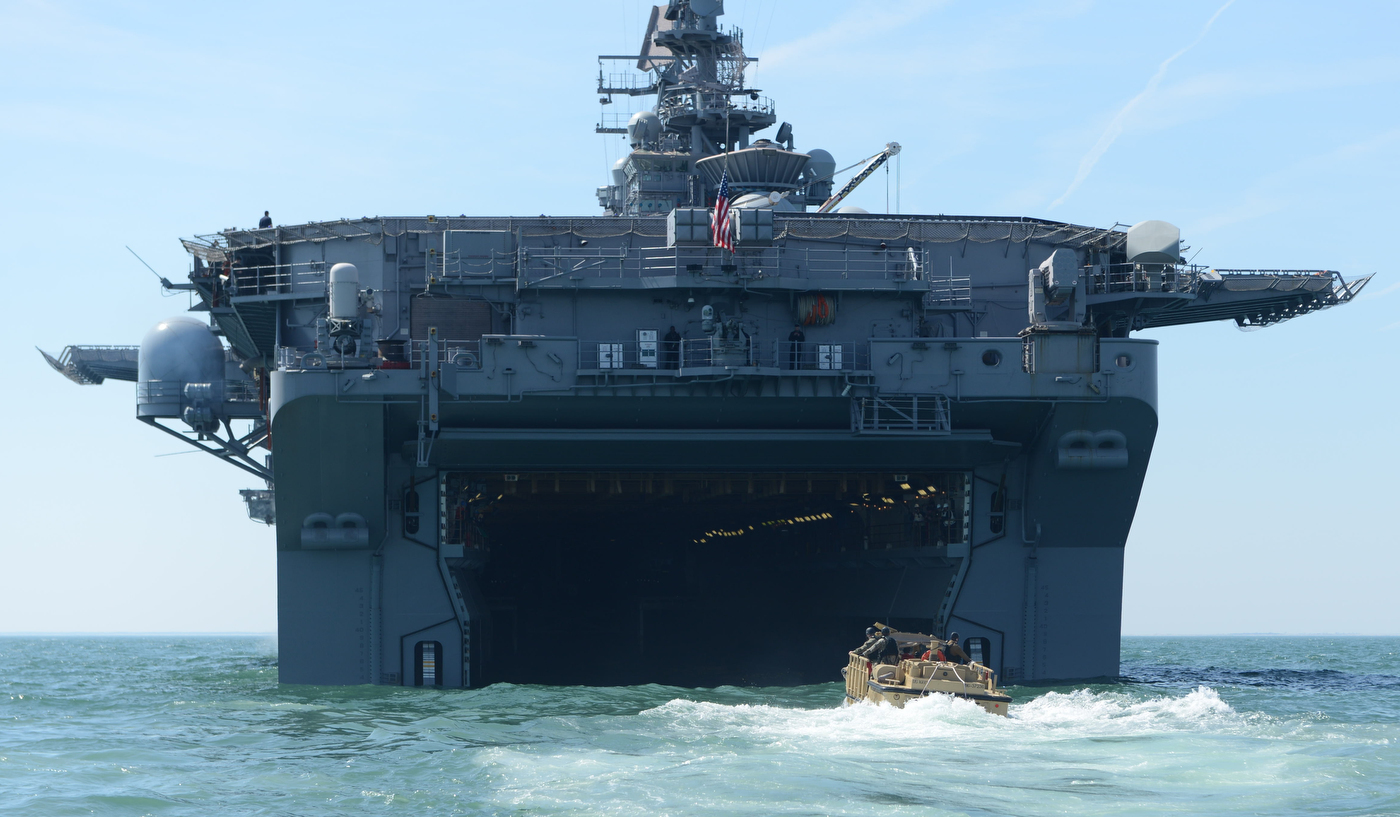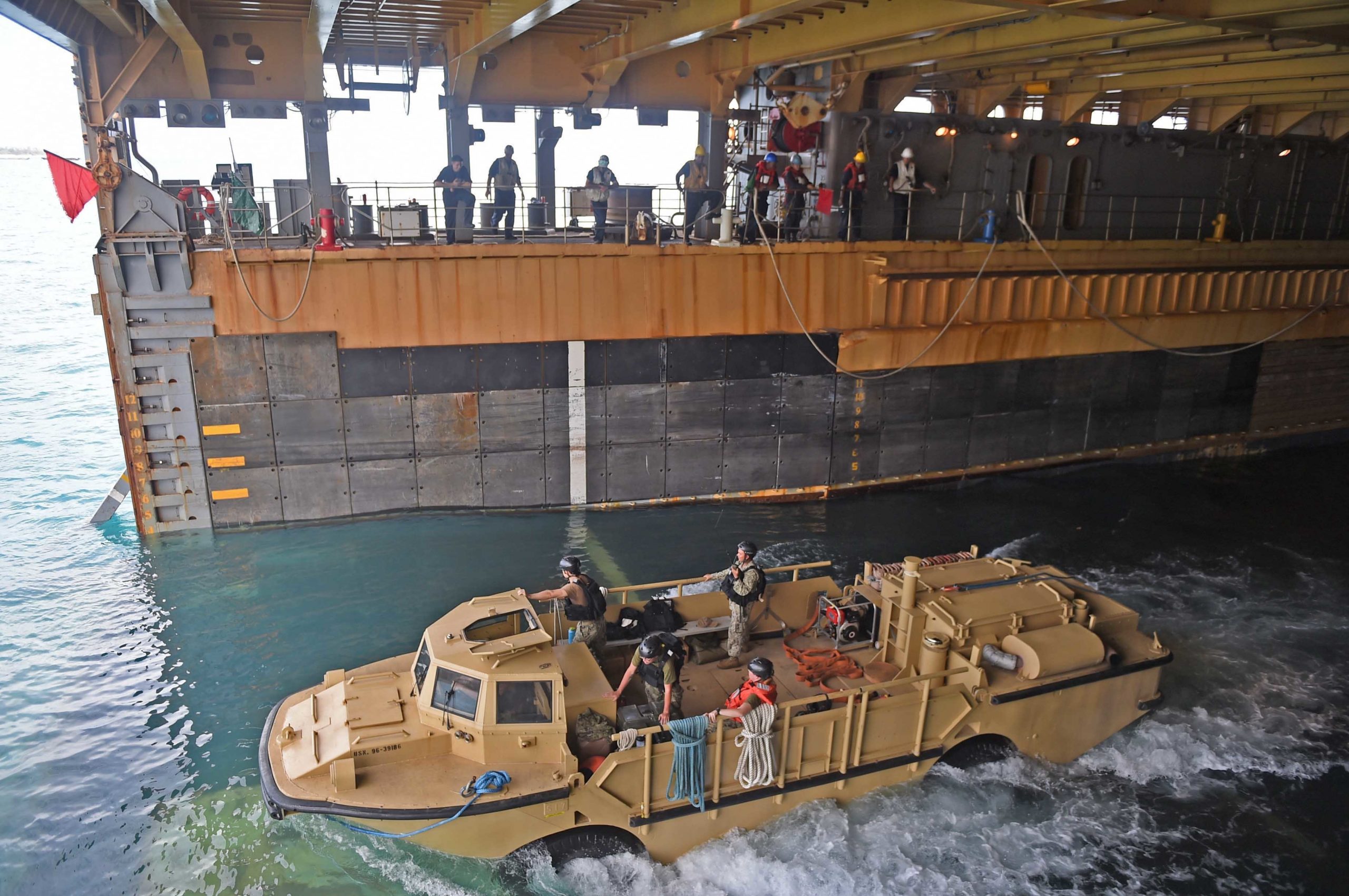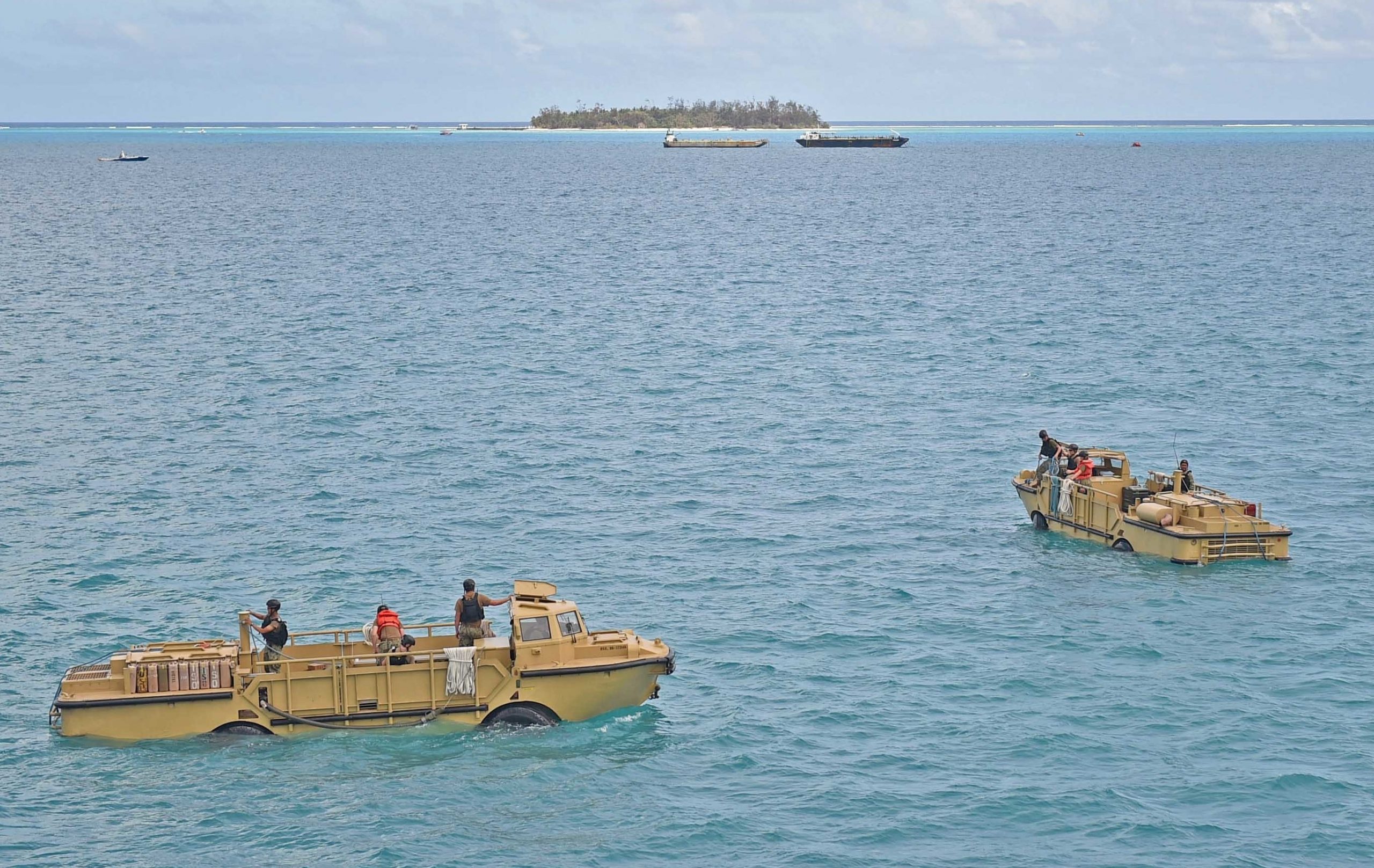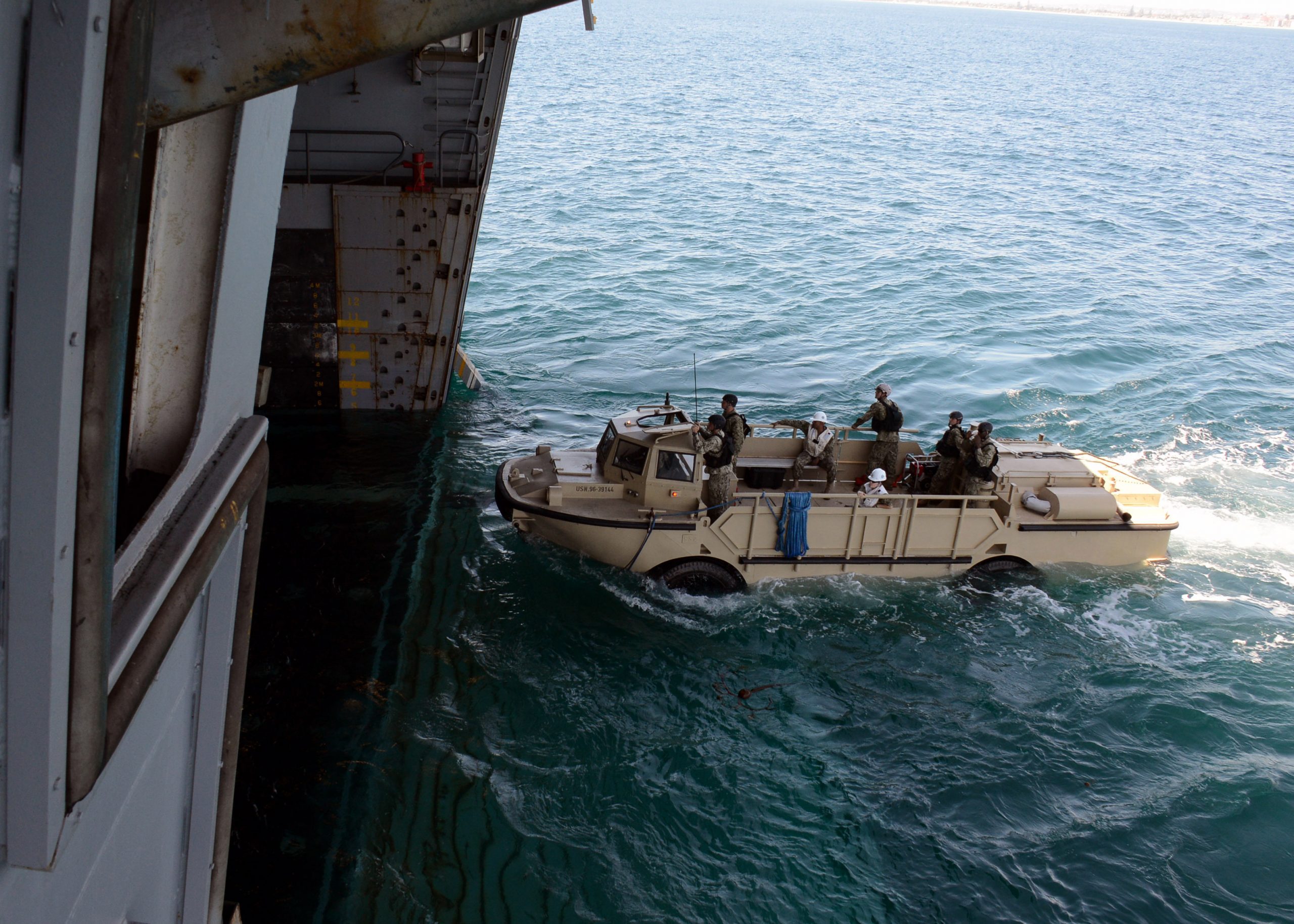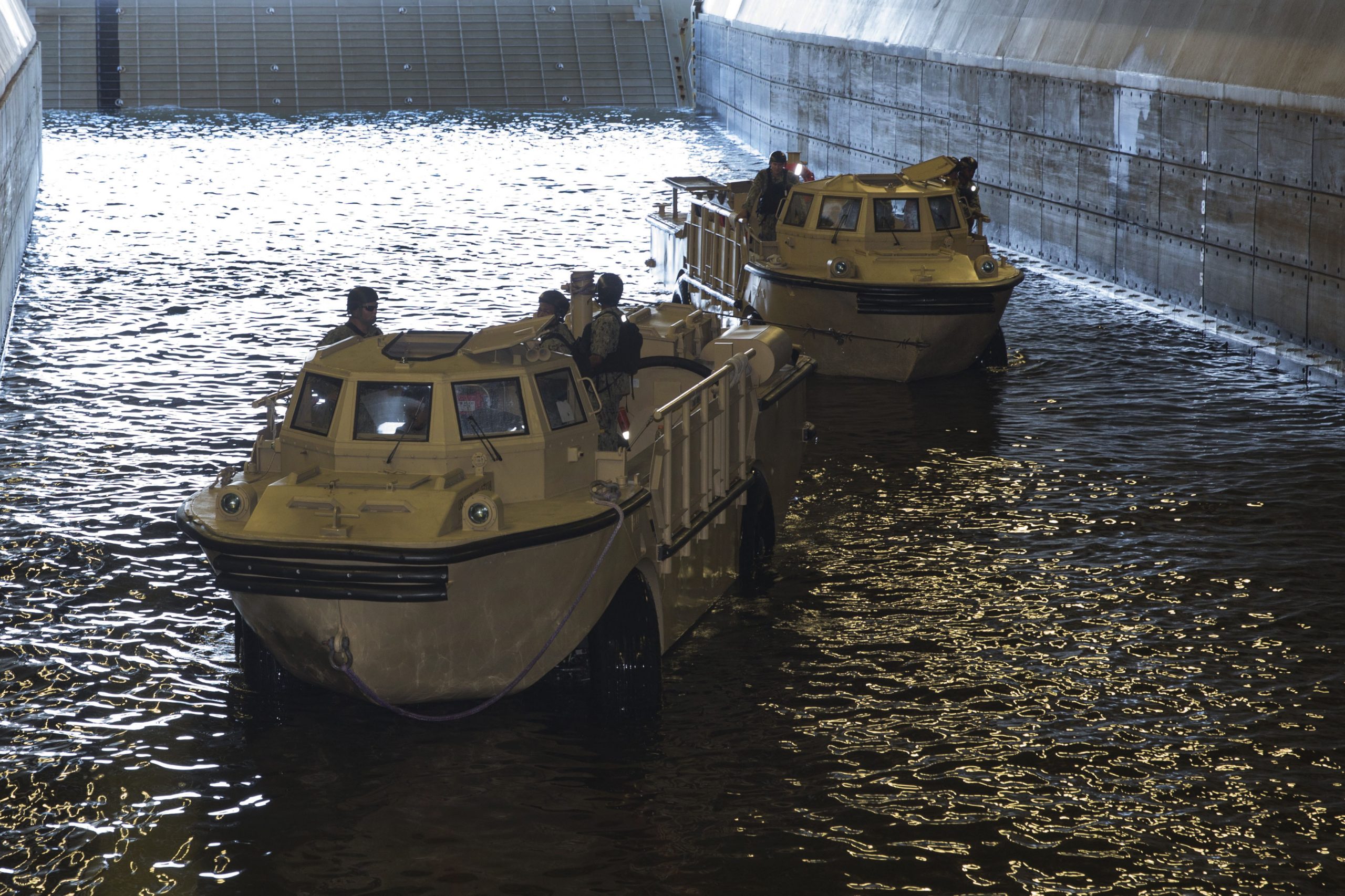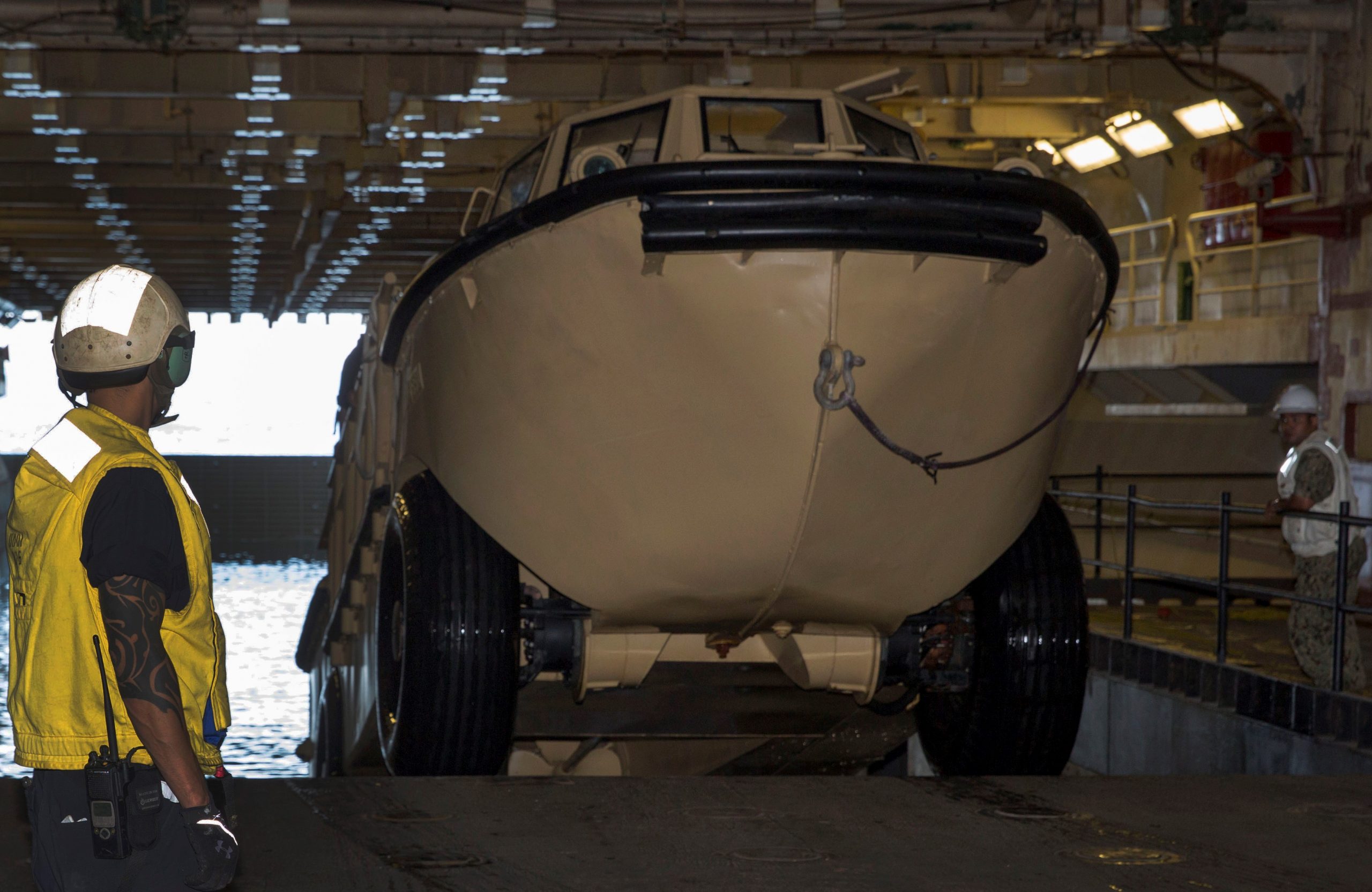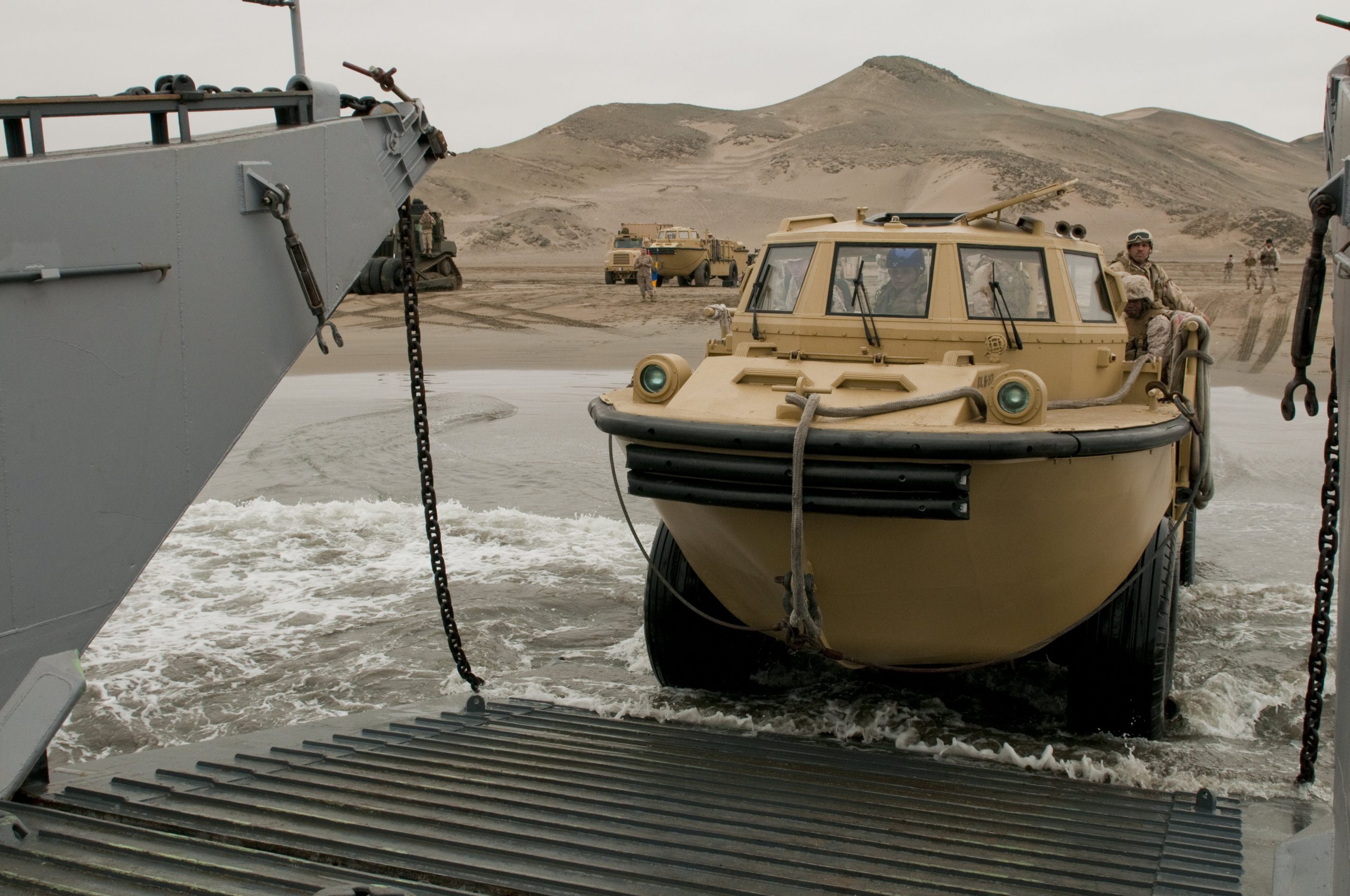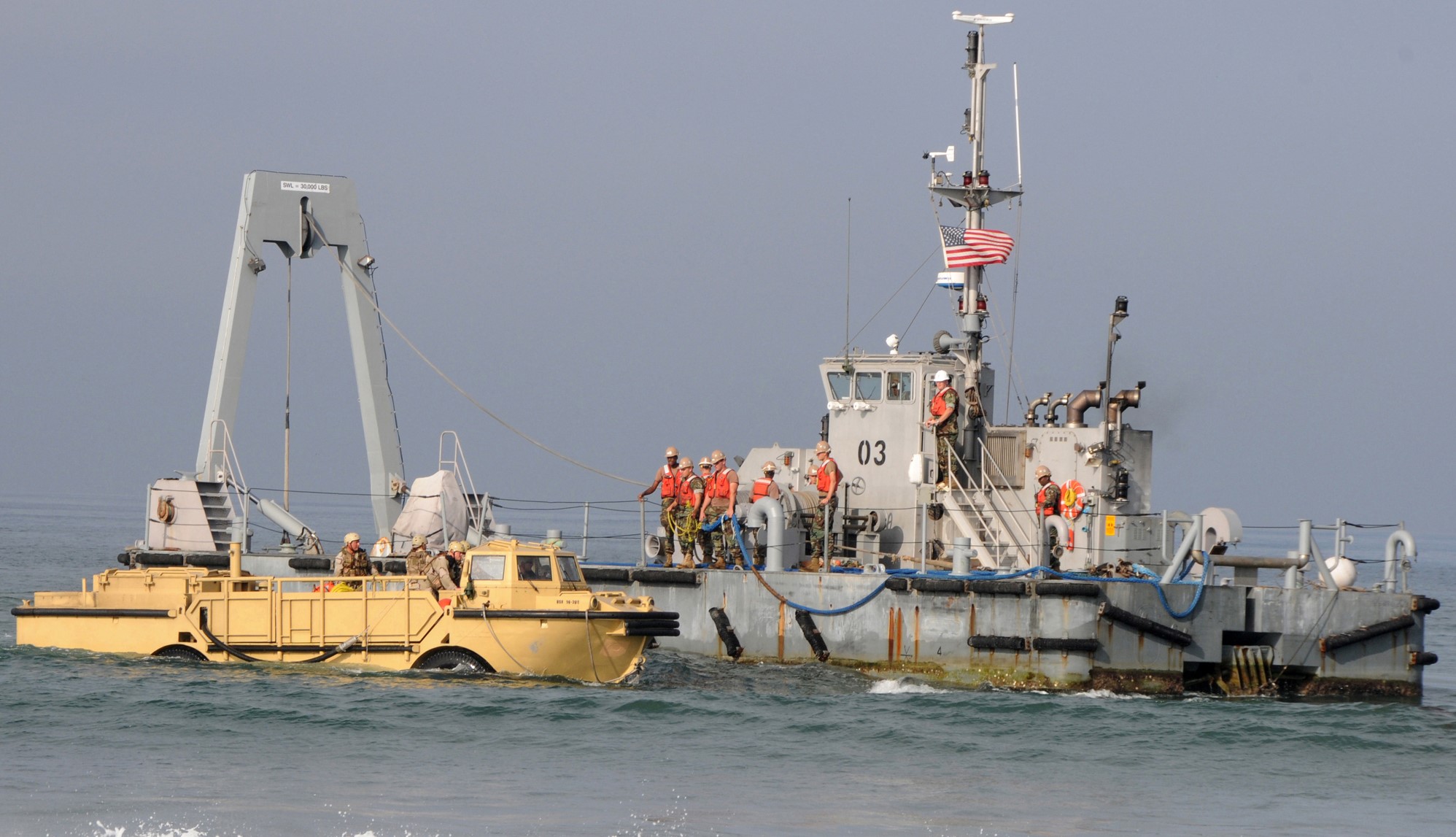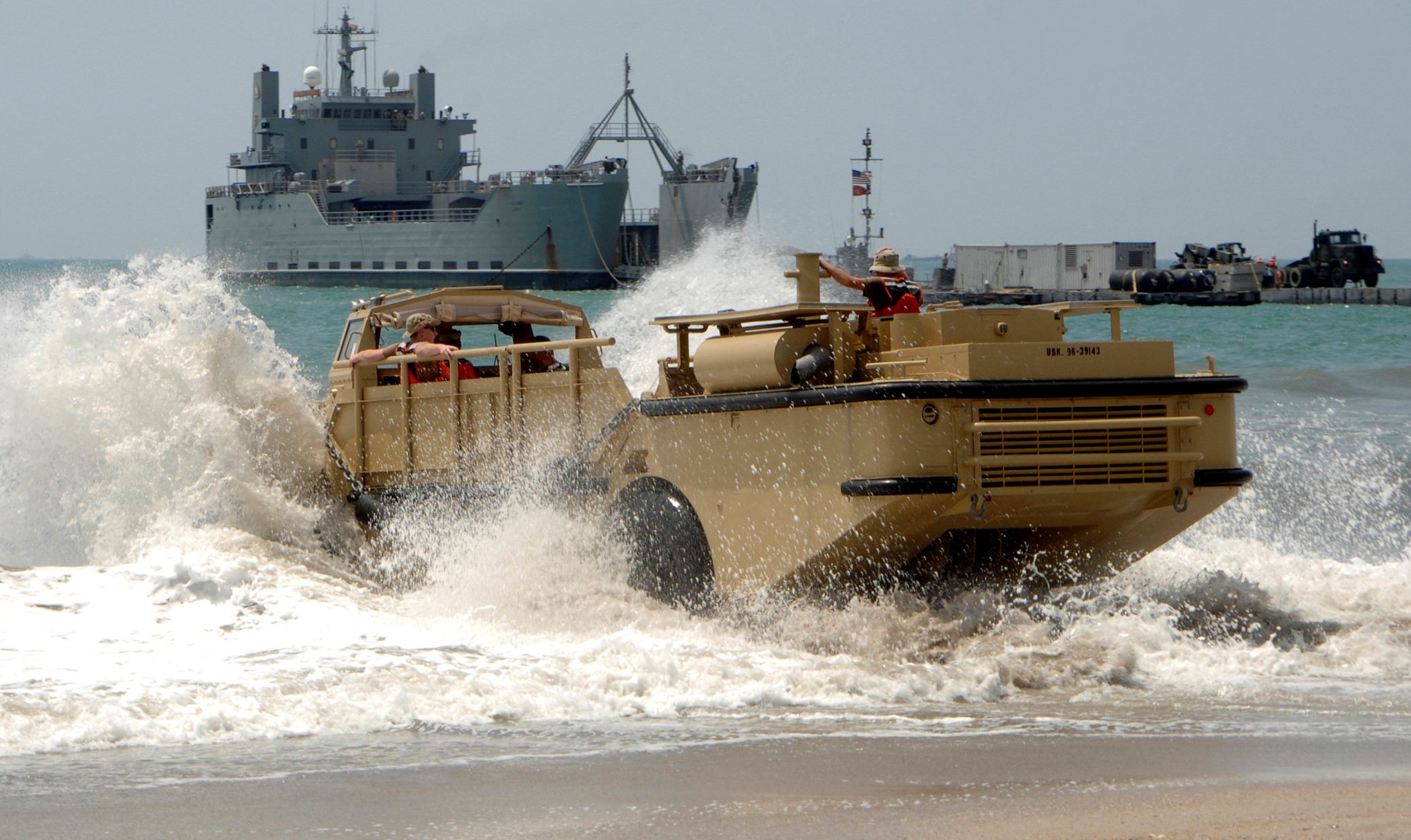The Lighter Amphibious Resupply Cargo-5 tons capacity (LARC-V) was developed by the U.S. Army in the 1950s. Just short of 1-thousand of the aluminum hulled boat-trucks were made, almost half being intentionally destroyed as the United States ended its occupation of Vietnam. About 1-hundred are now privately owned. Perhaps in response to concerns about climate change, the U.S. Navy ordered a SLEP (Service Life Extension Program) refurbishment of the versatile LARC-5, and since 2006 has accepted 42 of the upgraded decades old swimming trucks.
In September 2019, the U.S. Navy used LARC-5 Duck Boats to transport equipment that would allow Navy ships to transfer fuel oil to Alaskan villages onshore. It’s part of preparations for an expected major natural disaster that could cut-off remote villages along the U.S. Pacific coast.
Landing Craft Utility (LCU) ship with a couple of boat trucks during Baltic Operations (BaltOps) 2019.
Video of boat-truck (Duck Boat) actions on Kallaste Beach, NATO-Estonia, during BaltOps 2019:
Vice Admiral Richard Brown, then Commander of Naval Surface Force-U.S. Pacific Fleet, inspects the increasingly relevant (despite their old age) LARC-5s in San Diego, California, October 2018.
Inside the Wasp-class amphibious assault ship USS Essex (LHD 2), July 2017.
May 2017, launching a LARC-5 from astern the USNS SGT WILLIAM R. BUTTON during NATO’s Saber Strike 17, in Latvia.
Driver’s position.
Entering the well deck of amphibious transport dock ship USS Green Bay (LPD 20), October 2016.
Video, LARC-5s coming aboard USS Iwo Jima (LHD 7) via an LCU, October 2016:
Entering USS Bataan (LHD 5), March 2016.
In August 2015, LARC-5s were used to help survivors of Typhoon Soudelor, on the Marshal Islands.
Driving into the amphibious transport dock ship USS Green Bay (LPD 20), September 2014.
Inside amphibious assault ship USS Kearsarge (LHD 3), July 2014.
An abandoned and rusting (yes, aluminum does corrode) LARC-5 at Mackall Army Airfield, North Carolina, June 2012.
LARC-5s took part in a landing at Salinas Beach, Peru, July 2010.
September 2009, this boat-truck helped with the salvage of an abandoned and wrecked sailboat, near Coronado, California.
Fun in the sun at Camp Onslow Beach, North Carolina, June 2009.
Hurricane Harvey: MARINES USE AMPHIBIOUS COMBAT TANKS TO SAVE LIVES!
Bare Metal: NASA Trucks
1942 FORD FIRETRUCK RETURNS TO SERVICE WITH THE USAF!
WHAT DOES IT TAKE TO MAINTAIN A FLYING MILITARY FIRETRUCK?

